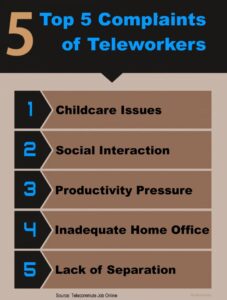If you are currently telecommuting and working from home under a temporary agreement with your employer, whether they be private businesses, nonprofits, and federal, state, or local governments, there is a good chance that you will continue to work from home following the pandemic.
Is Telework a Ticking Time Bomb?
Many businesses and organizations are already making plans to cut back on the currently extraneous resources necessary to keep in place for your return to work after COVID-19 restrictions are lifted. So, if you are thinking about returning to your former office space, you might be surprised to find the entire building empty, for lease, or sale.
(tick, tick, tick)
While many employers are using teleworking as a method to “just get by” during the coronavirus lockdown, most of them are reorganizing their efforts to focus on expanding teleworking from home at an increased rate after restrictions are lifted.
(tick, tick, tick)
Of course, it makes sense from a budget perspective as the business or organization does not have to bear the expense of all that overhead associated with providing a space for workers, which is beginning to look like an archaic form of conducting one’s business affairs.
(tick, tick, tick)
And employees are responding much better than expected. Professional performance rates are up since they started working from home, as much as 20% or more (some employers are reporting productivity increase as much as 33%).
The logical conclusion is to continue doing what works best and cut out all the expenses that were associated with the old methods of doing business.
(tick, tick, tick)
The employees are ecstatic to recouped hours of their lives previously spent commuting to and from work, and their costs of working have also been greatly reduced, such as laundry, and meals.
(tick, tick, tick)
 Even so, there is also a Dark Side of Teleworking that employers are not as concerned with as the employees are, as the Top 5 Complaints of Teleworkers are childcare issues, no social interaction, productivity pressure, inadequate home office space and/or supplies, and lack of separation while working at home.
Even so, there is also a Dark Side of Teleworking that employers are not as concerned with as the employees are, as the Top 5 Complaints of Teleworkers are childcare issues, no social interaction, productivity pressure, inadequate home office space and/or supplies, and lack of separation while working at home.
If there were a number 6 ranked complaint, it would be growing tension at home. Families are unaccustomed to being basically celled-in with each other for long periods of time, and the huge growth in domestic violence calls since the lockdown was initiated bears witness to this.
(tick, tick, tick)
So, the tension is building as the pandemic marches on, and this may be the ticking time bomb for those who are telecommuting and working from home.
(tick, tick, tick)
The businesses and organizations that are fully embracing the idea of going forward into the future with as much telecommuting as possible are considering upping the ante in support of the new teleworking community by adding subsidies to help take the edge off of working from home.
Some examples include a stipend or expense account for telecommuters for ancillary expenses which were previously borne by the company or organization. This might include everything from toilet paper and coffee to office supplies and technology-related expenses. Some employers are entertaining the idea of subsidizing rents or mortgage payments in exchange for the area inside the home which is set aside for work-related activities.
(tick, tick, tick)
What does the future hold for telecommuters?
No one knows for sure, but the future will have many more employees working from home than you ever thought possible pre-pandemic.
What will it look like?
We don’t know, but we are eager to find out.
Is telework a ticking time bomb?
Not if we are aware and prepared for what lies ahead.
